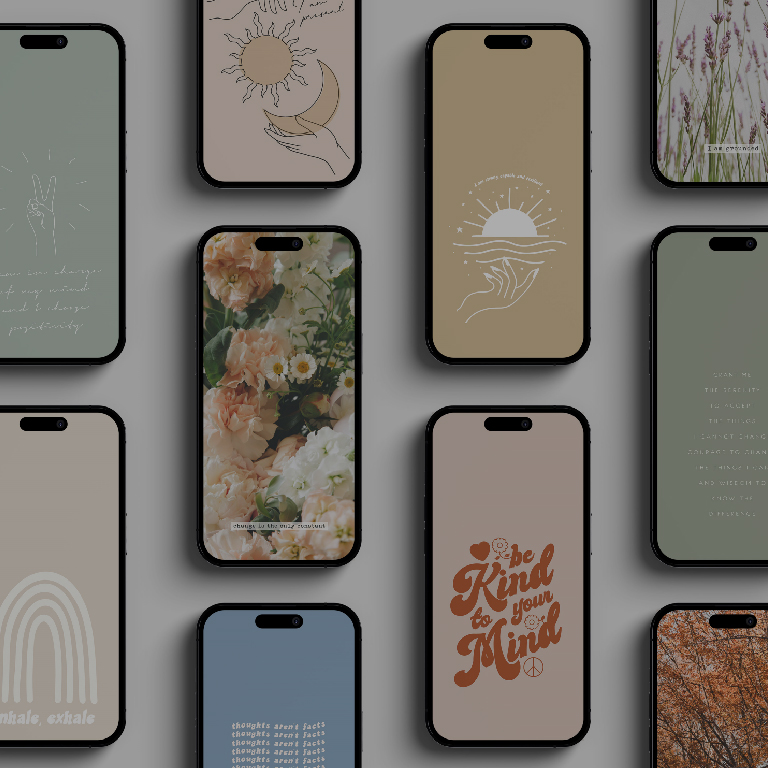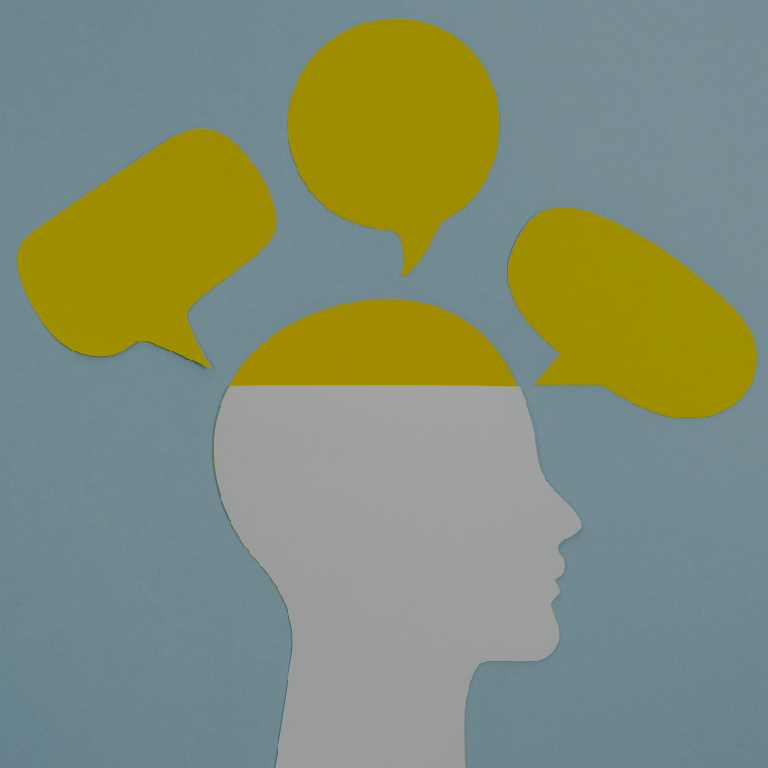How to deal with uncertainty? First, you must realise that it's an unavoidable part of life. It's difficult to handle because we have a strong need for control and predictability. In uncertain situations, our stress response is often triggered.
From an evolutionary perspective, humans are built to be able to anticipate danger, prepare for it, and fight against it. Think about the Stone Ages and what our ancestors had to go through. They had to fight predators, natural disasters, and be alert for everything that might pose a threat to their survival.
In today's world, we have different dangers that we have to adapt to, but our brains are still wired the same, and as a consequence, we react with the same response.
When we're in ambiguous situations where we don't have enough information and don't know what could come next, our reptilian brain takes over and triggers the fight, flight or freeze response.
6 Tips for How to Deal with Uncertainty
1. Use Self-Compassion
People deal with uncertainty in different ways. In such a situation, take a few moments to sit with your emotions. Whether you experience worry, anxiety or stress, remind yourself that your feelings are normal and perfectly okay.
Sometimes we fight against what we’re feeling. Nobody likes to feel bad! But trying to push away or avoid your emotions only leads to intensifying them.
As a result, you might end up feeling worse. Other times we punish ourselves for our feelings, we label or even criticize ourselves which can lead to a lot of unnecessary pressure. As an alternative, try to be compassionate towards yourself and observe what you're thinking and feeling. Allow space for your response. You’re only human and you have the right to your experience in that moment.
It sometimes helps to write down your thoughts and emotions so you can take a step back from them. Check out this article for more tips on how to process your emotions.
2. Practice Acceptance
"Don't demand or expect that events happen as you would wish them do. Accept events as they actually happen. That way, peace is possible." – Epictetus
Acceptance in this context means reflecting and trying to integrate the idea that life is uncertain and always has been.
Experiencing uncertainty is part of our human existence and it’s something that you do every day, even though you might not be aware of it!
There are many things in your life that you can't be fully certain about, no matter how hard you try. When you attempt to control events that are not within your control, you might end up feeling demotivated and even powerless. In contrast, accepting that you sometimes have limited control over events and that you have to live with moments of uncertainty can be very freeing.
Sāi Wēng Shī Mǎ, also known as "The Old Man Who Lost His Horse," is a well-known Chinese fable that dates back to ancient times and teaches lessons about the unpredictability of life.
The story revolves around an old man who lived in a village and owned a horse. One day, his horse ran away, and the villagers expressed their sympathy, considering it a great loss. However, the old man remained calm and simply said, "Who knows if it's a good thing or a bad thing?"
A few days later, the old man's horse returned, leading a group of wild horses back to the old man's stable. The villagers rejoiced at his good fortune, considering it a great gain. Again, the old man responded, "Who knows if it's a good thing or a bad thing?"
The old man's son was tasked with taming the wild horses. During the process, he fell off one of the horses and broke his leg. The villagers viewed this as a tragedy, while the old man remained composed, repeating his mantra, "Who knows if it's a good thing or a bad thing?"
Soon after, war broke out in the region, and the government conscripted all young men from the village to join the military. Due to his injury, the old man's son was exempted from serving. Once again, the villagers considered it a stroke of luck, but the old man remained unperturbed, reiterating, "Who knows if it's a good thing or a bad thing?"
The story of Sāi Wēng Shī Mǎ emphasizes the idea that labeling events as strictly good or bad may limit our understanding of the bigger picture. Life is inherently uncertain. Remembering this story may bring you comfort in challenging times and periods of uncertainty.
3. Stay in the Present
Nobody can predict the future. No one knows what’s going to happen. We can't control what other people feel, think, or how they behave, and we can't control what life might throw at us.
Sometimes we overthink, ruminate, or try to distract ourselves by focusing too much on past or potential future events. Instead, we can learn how to live more in the present moment.
Mindfulness helps. Remind yourself to stay in the present and be mindful and conscious about what’s happening in your life right now, expressing gratitude as often as you can.
4. Reflect on Past Experiences
Past experiences, especially negative or difficult ones, offer us the biggest growth opportunities.
This might seem hard to accept when we’re going through them, but it can be useful to look back at what we learned and how we can use that in the future. Think about one or two experiences from your past when you had to deal with uncertainty.
What did you learn about yourself?
What skills and strengths did you use in those situations?
Maybe you discovered you’re resilient, found out you have great organizational skills, or realized who the people in your life are that you can count on. Whatever it was, you gained valuable insights. Those abilities and skills can support you in future uncertain situations.
5. Practice Self-Care Routines
In uncertain moments we might feel stressed, stuck or overwhelmed. It's helpful to have habits and positive activities that can keep you grounded, allow you to take a break and recharge your batteries. These should be simple activities that don't take a lot of time and that are easy to introduce in your everyday routine.
Ask yourself: What makes me feel relaxed? What gives me a sense of relief? What helps me to recharge?
6. Plan for Change and Uncertainty
In order to feel more prepared about unexpected things that can come into your life, make a plan that you can go back to, again and again in times of need, so you can feel more positive about how to deal with uncertainty.
If you take into consideration the strategies presented above, you can create a plan for yourself by finding the answers to the questions below.
Use your plan as often as you need to and modify and adapt it to the specific situations that you are going through.
- How do I generally manage uncertainty?
- How can I accept what is happing and show compassion and understanding towards myself and my emotions?
- What skills and strengths can I use if something unpredictable comes my way?
- What habits and self-care routines have I created for myself that can support me in uncertain times?
- Who can I reach out to for empathy, emotional support, and practical help if I need to?
Summary
Dealing with uncertainty is hard. Use self-compassion and acceptance, stay in the present, and practice self-care. Learn from the past and plan for the future. Find strategies that work for you, and practice them as often as possible so you can feel better prepared to deal with unexpected situations and events.
A Toolkit to Help You Reduce Anxiety
Research shows that self-help materials are often enough for people to overcome mild to moderate mental health difficulties without professional support.
Our self-guided program includes tools from CBT, DBT, ACT and more, so you can discover what works best for you. Check out The Mental Wellbeing Toolkit today – it's "like 10 therapy sessions in one."

About Roxana
Roxana Petrus is a psychologist and an emotional health specialist with a background in cognitive-behavioral psychotherapy. She currently supports amazing women in finding their emotional balance and improving their communication skills. She is located in Basel, Switzerland and works mostly online, offering individual sessions, different programs and workshops.Website
Email: coaching@roxana-cristina.com



